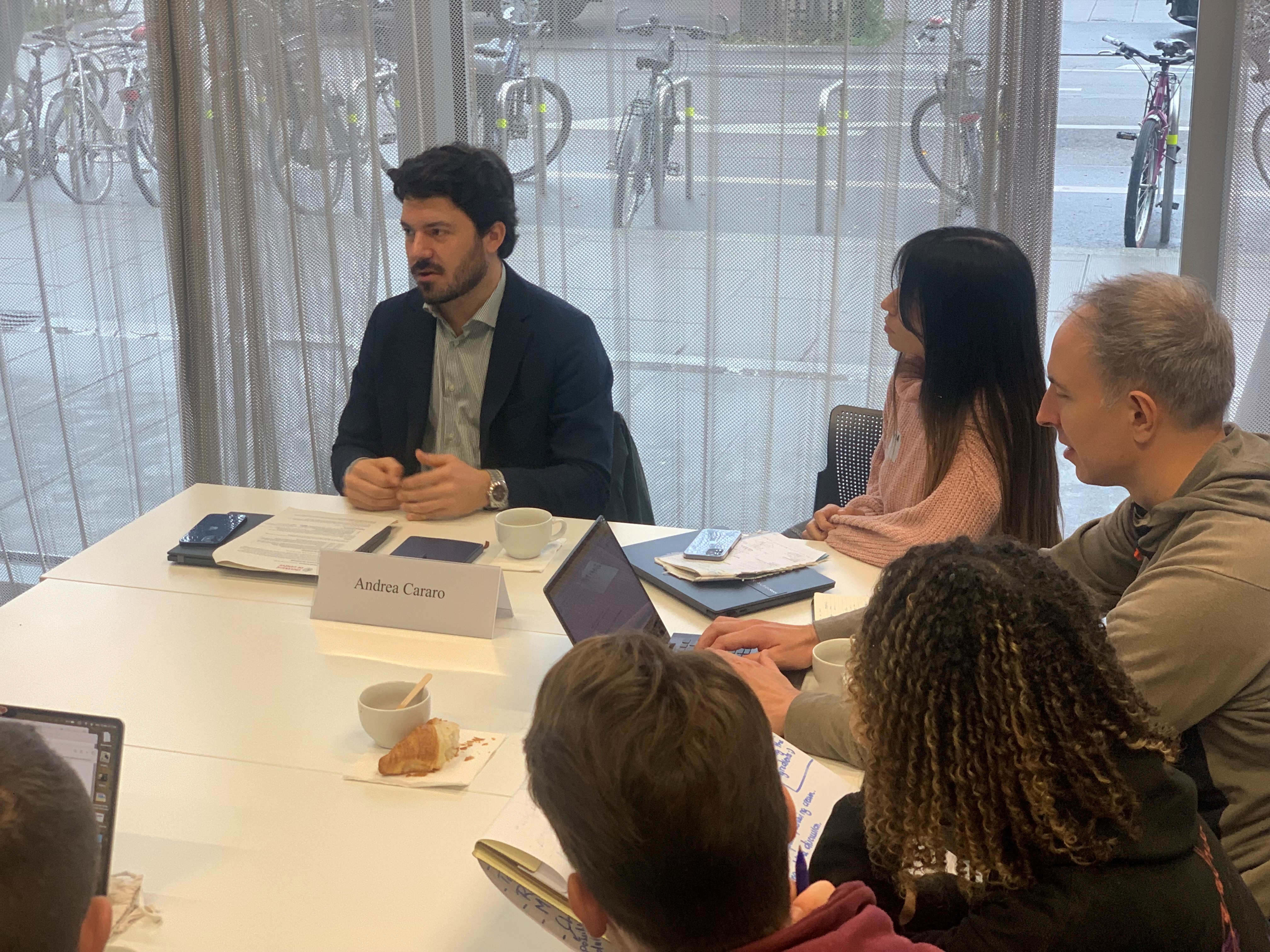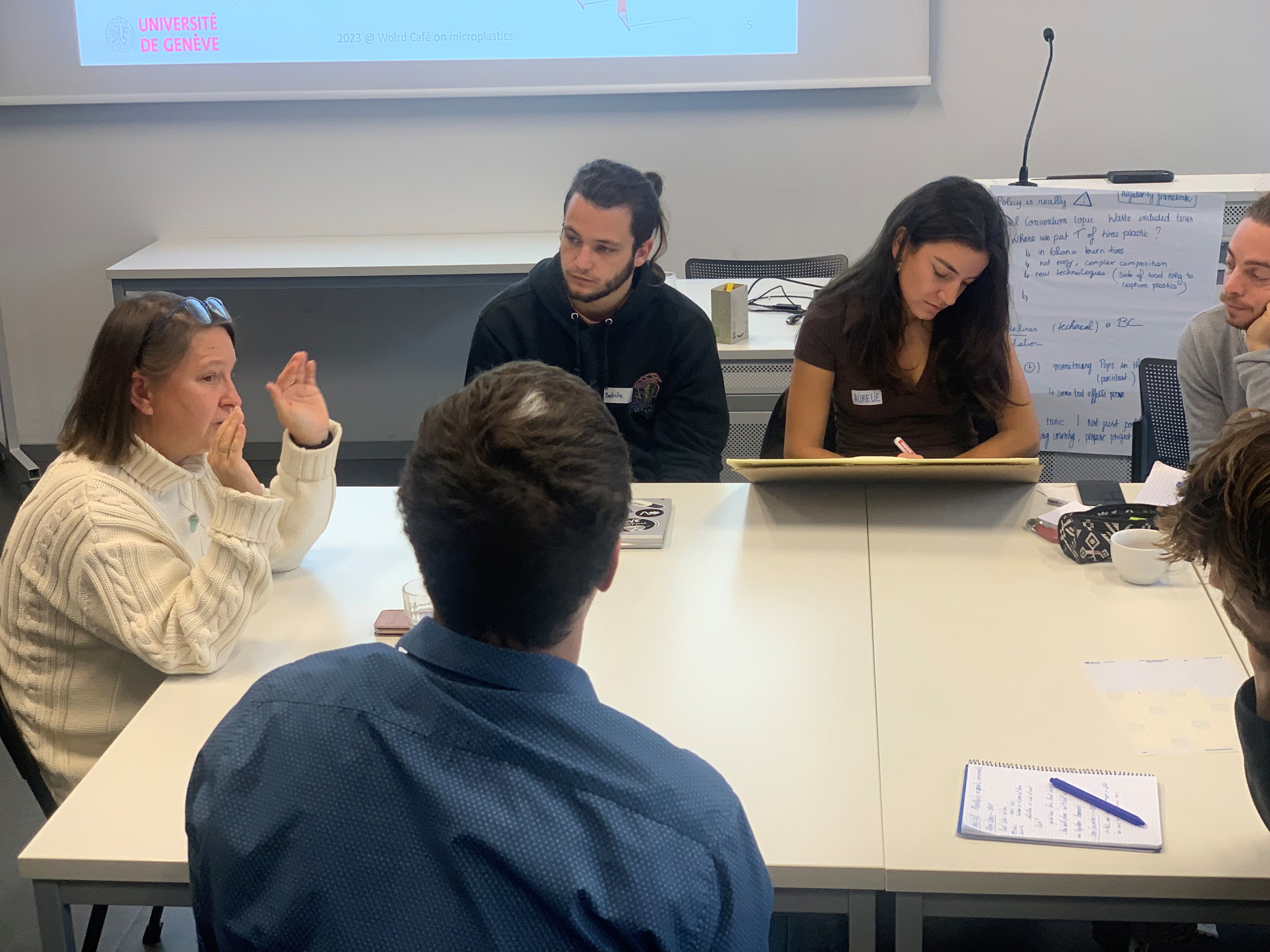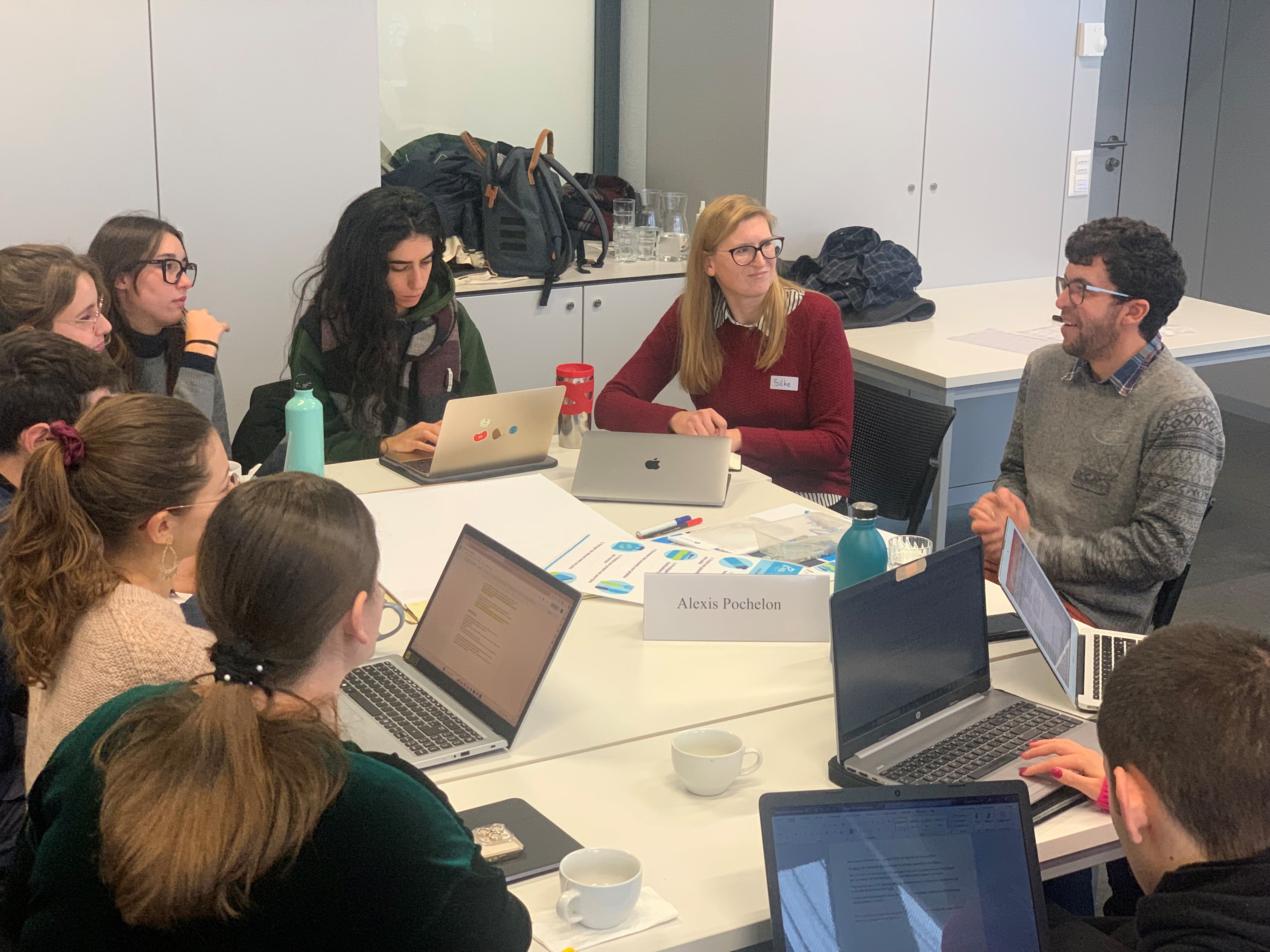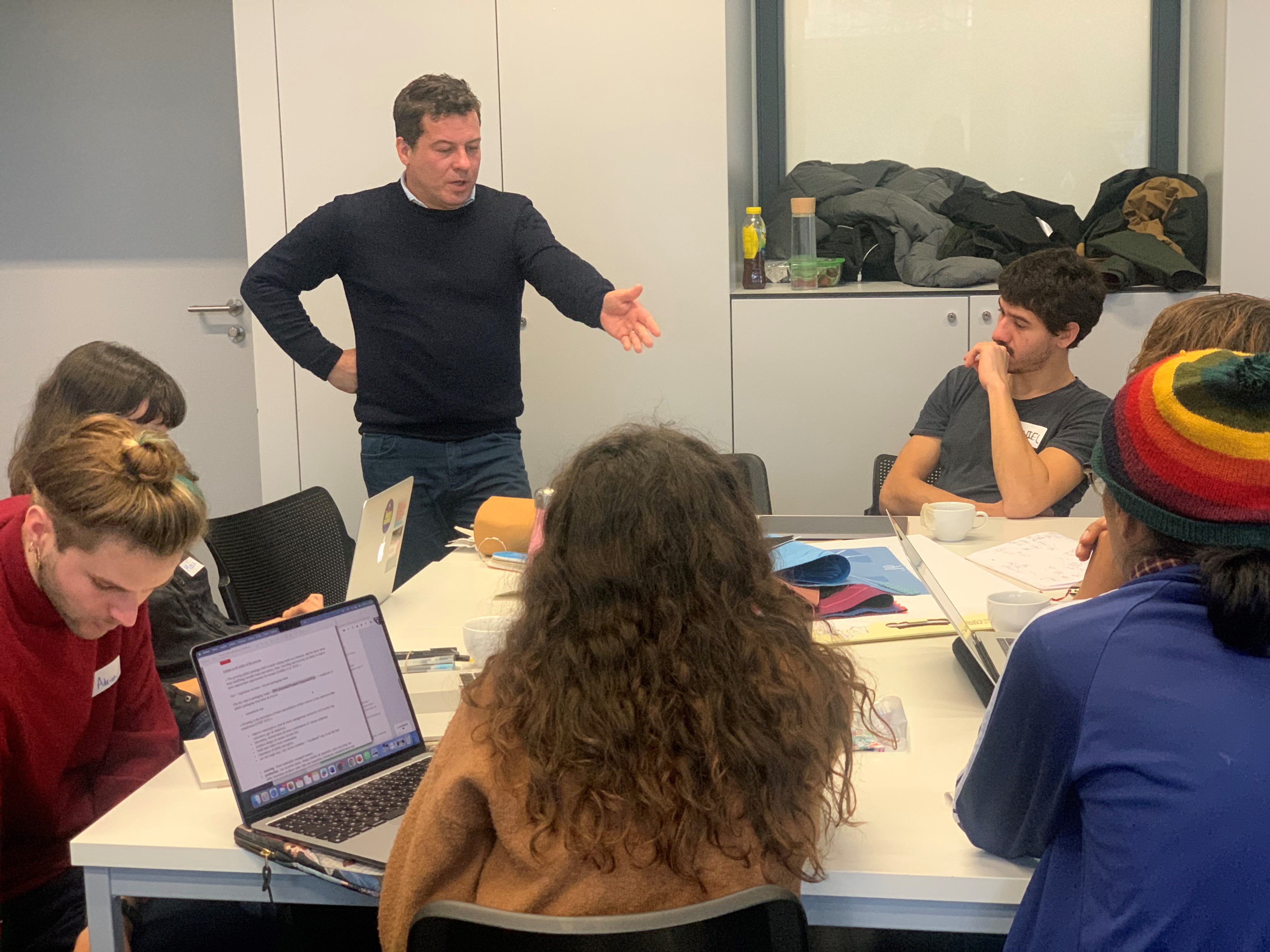Presentation
World Café on Microplastic Pollution
A World Café workshop in the framework of the MSc in Environmental Science (MUSE) and in the context of the course titled "chemistry of the environment and global cycles" taught by Professor Vera Slaveykova (Faculty of Science).
This innovative format is a combination of the World Café and the Flipped Classroom methods with the addition of external experts.
The overall workshop objective is threefold: (1) to increase student engagement and learning (2) to give students the opportunity to gain problem-solving skills by tackling real global issues with real professionals (3) to give students the possibility to learn to work effectively in groups by designating their role within the team prior to the workshop.
In terms of learning objectives, this blended method allows students to achieve the following learning outcomes: Remembering, Understanding, Evaluating and Creating.In terms of the program (MUSE), the objective is to encourage a dialogue between academia and the professional world as well as between science and policy.
Guest speakers:
Mr. Tomasz Blasiak, Group Purchasing Leader at Coats Footwear
Mr. Andrea Cararo, Programme Management Officer at UN Environment, Science and Technical Assistance Branch, Basel Rotterdam Stockholm Conventions
Mr. Alexis Pochelon, Responsable de projet, Association pour la Sauvegarde du Léman
Ms. Lynn Sorrentino, Programme Officer, Ocean, Plastic Pollution, Plastics Treaty, IUCN Centre for Conservation Action International Union for Conservation of Nature




